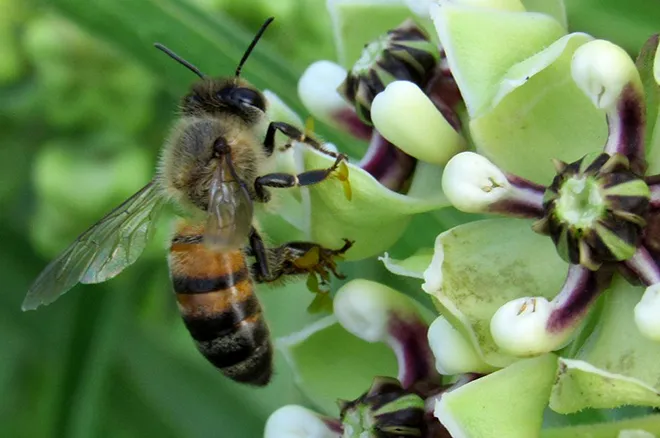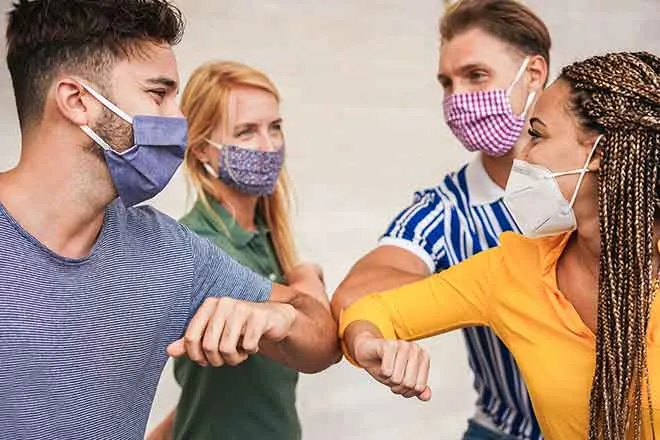
Daily Audio Newscast - September 23, 2024
News from around the nation.
The U.S. has seen over 400 mass shootings, including a targeted attack in Birmingham that killed four. House Speaker Mike Johnson proposed funding the government until December 20, and California will ban plastic bags by 2026. New EPA standards could save over 200,000 lives, and conservation groups oppose lifting gray wolf protections.
Transcript
The Public News Service Daily Newscast, September 23, 2024.
I'm Farah Siddiqui.
This year, the U.S. has experienced over 400 mass shootings.
In a tragic incident Saturday night in Birmingham, Alabama, four people were killed and 17 others injured when multiple shooters opened fire in a busy entertainment district.
House Speaker Mike Johnson proposed a limited continuing resolution to fund the government until December 20, including $230 million for the Secret Service in a Sunday letter to his members.
Congress has one week from today to reauthorize a sweeping policy that plays a big role in shaping the nation's food production system.
Wisconsin agricultural voices are paying close attention.
The Farm Bill is supposed to be renegotiated every five years.
A temporary extension was approved one year ago amid big differences about where to prioritize aid.
Chuck Enderas of Wisconsin's Michael Fields Agricultural Institute says as these issues get sorted out, organizations like his hope lawmakers don't lose sight of the need to adequately fund conservation programs that often benefit small farms.
To neglect that is basically just picking winners and losers within the agricultural economy.
The Farm Bill also covers the Supplemental Nutrition Assistance Program, or SNAP.
House Republicans proposed formula changes that hunger relief advocates say would amount to a $30 billion cut.
GOP leaders dispute that claim, saying they would lower costs without cutting anyone's benefits.
I'm Mike Moen.
New Mexico's Doña Ana County clerk says she feels better than expected about security and safety ahead of November's elections, but still works to dispel disinformation as quickly as possible.
Ross Brown has more.
Amanda Lopez Askin expects to be fully staffed on November 5 and is also prepared for a lone wolf disrupting a polling place.
Askin says she doesn't worry about "miss" or disinformation influencing voters who call to make sure their registration is up to date, but she is concerned for those who don't historically vote and may fall victim to deceptive social media posts.
Because it is often just headlines or sensationalized and it's not necessarily giving accurate information and creating a lot of faith in our elections.
Montana's largest indigenous rights group is hosting a series of events around the state to empower Native voters as the election draws closer.
Mark Moran reports the next one begins today in Fort Belknap.
The so-called "Snag That Vote" events are about more than just registering and encouraging all indigenous people to vote.
Western Native Voice communications director Tracy Garfield says there's a special focus on educating young people.
They're brand new voters, so this may be the first time they're voting.
But I believe that if we can get them to vote in this election, the likelihood of them voting in more elections is pretty high.
In addition to the Fort Belknap event that starts today, she says Western Native Voice is holding outreach events in Crow Agency, Lame Deer, Polson and Poplar through early October.
This is Public News Service.
Under a new law signed by Governor Gavin Newsom, California will ban all plastic shopping bags starting in 2026, eliminating the paper or plastic choice at grocery store checkouts, where shoppers will instead be offered only paper bags if they don't bring their own.
From one coast to the next, a growing number of Massachusetts restaurants are cutting ties with single-use plastic.
Catherine Carley reports.
The to-go containers and utensils often can't be recycled and end up in the trash.
At Johnny's Luncheonette in Newton, customers can request a reusable box through an app called Recirclable and return it within two weeks to more than a dozen area businesses.
Restaurant co-owner Kay Masterson says people love it.
"It's the people who always bring their bags.
It's the people who always carry a water bottle.
They're like, 'Oh my gosh, another thing that is pretty easy to do that reduces all kinds of waste.
This isn't hard.'"
It's also free.
Masterson says the goal is to normalize the use of reusable containers and encourage people to skip the stuff.
Those condiments, napkins and straws, adding to the nearly five million tons in disposable food service waste each year.
I'm Catherine Carley reporting.
Cleaner air should lead to substantial economic health benefits.
Eric Galatas has more.
New air pollution standards issued by the Environmental Protection Agency over the past four years should bring $250 billion in economic benefits each year in Colorado and across the U.S., according to a new report.
Co-author Rob Welcott with the Environmental Protection Network says the new protections will also save over 200,000 lives.
In addition to the reductions in premature death, we have the massive reductions in the number of asthma attacks.
Analysts project that reduced air pollution from industry and tailpipes will lead to 100 million fewer asthma attacks, ensuring fewer missed school days and fewer trips to the emergency room.
Coloradans living along the Front Range may have to wait for some benefits.
The EPA has cited Colorado for not reducing ground-level ozone pollution to levels considered safe.
Environmental groups are slamming a Biden administration effort to remove federal protections from the endangered gray wolf.
The U.S. Fish and Wildlife Service just appealed a 2022 court decision that reinstated protections for the gray wolf under the Endangered Species Act, protections lost in the Trump era.
Derek Goldman with the Endangered Species Coalition says the feds are making contradictory moves.
On one hand, they said earlier this summer that they want to write a national recovery plan, but then they appealed to reinstate the Trump wolf delisting rule, which would presumably mean they don't have to do a recovery plan.
So this is kind of sending a mixed message here.
In the suit, Justice Department attorneys argued that the gray wolf is no longer in danger of extinction.
I'm Suzanne Potter.
This is Farah Siddiqui for Public News Service, member and listener supported, heard on interesting radio stations, your favorite podcast platform.
And you can find our trust indicators at publicnewsservice.org.

















